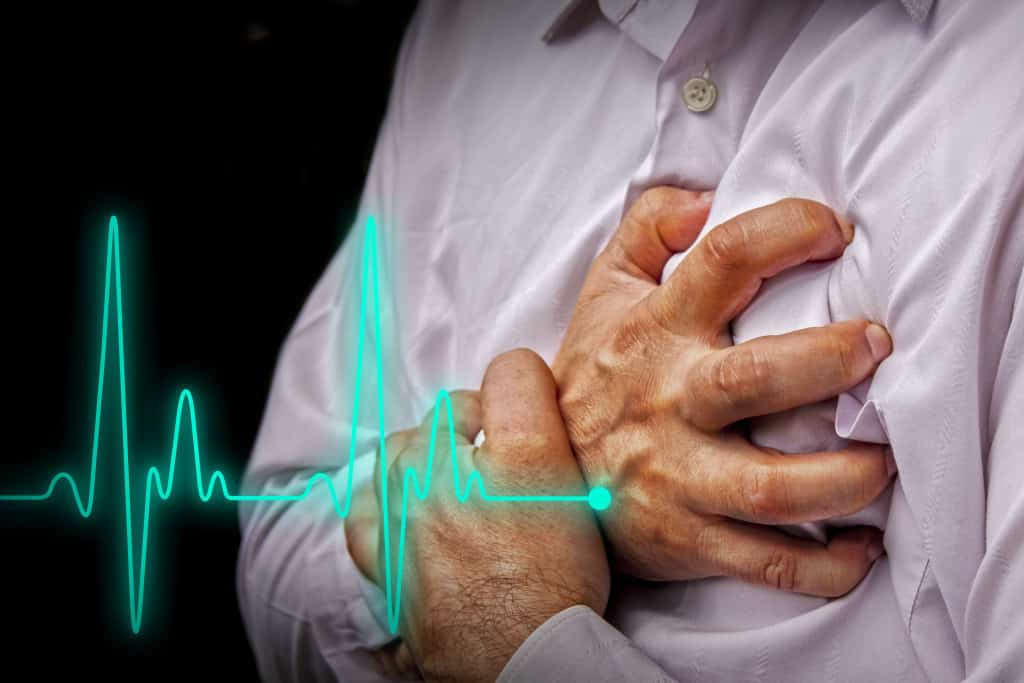
The heart is a muscular pump that depends on a fresh supply of oxygen in order to function. Without oxygen the heart muscle becomes injured and dies. The right and left coronary arteries arise from the root of the aorta and carry oxygenated blood to the heart muscle through several branches. If one or more of these branches become narrowed or blocked by atherosclerotic plaques, then the heart muscle that is supplied by those branches will be starved of oxygen.
In the case of an incomplete blockage, or just a narrowing of a coronary vessel, a mismatch will develop between oxygen demand due to work of the heart and the amount of oxygen-carrying blood that can reach it. This is why people with narrowed coronary arteries can get chest pain on exertion. The work of the heart is dependent on the heart rate, the preload or diastolic filling pressure, and afterload, which is due to arterial pressure.
Nitroglycerin helps relieve chest pain by reducing the work of the heart. It does this by dilating blood vessels principally in the venous system thereby reducing preload. It also has some effect of arterial dilation at higher doses and thereby also reduces afterload.
There are several types of angina. Stable angina is a type of angina that is brought on by exercise but is chronically recurrent, not escalating, and relieved by rest.
Spastic or Prinzmetal angina occurs at rest and is due to spasm of coronary arteries rather than excessive plaque. It is typically chronically recurrent and may occur in clusters over time. It responds well to nitrates and is also treated with calcium channel blocker medications. Beta blocker medications are contraindicated because they can result in vascular vasoconstriction, which would worsen the condition.
Finally there is Unstable Angina. This is the most serious. Angina is considered unstable when it is of new onset or beginning to occur at rest or is getting more severe. Unstable Angina therefore may develop in a patient with preexisting stable angina or develop in someone with no prior history. So not only should you ask if the patient has had chest pain in the past, but whether it has gotten worse or more easily induced. Note also, unstable angina may or may not be relieved with nitro.
Unstable angina may quickly progress to myocardial infarction. Therefore, patients with unstable Angina should be admitted to a monitored hospital bed and often undergo coronary catheterization to evaluate their coronary artery circulation.


